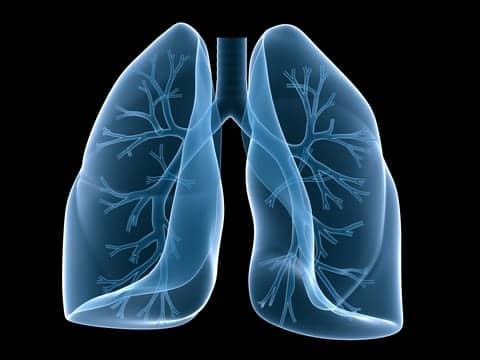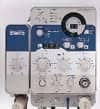Proteostasis Therapeutics Inc has reported positive preliminary results from three doublet cohorts of the company’s ongoing Phase 1 studies of PTI-808 and PTI-801 for cystic fibrosis.
[maxbutton id=”1″ url=”http://info.respiratory-therapy.com/regform” text=”SUBSCRIBE TO NEWS” ]
These studies were designed to assess the safety, tolerability, and pharmacokinetics (PK) of PTI-801, a third-generation CFTR corrector, PTI-808, a novel CFTR potentiator, and PTI-428, a novel CFTR amplifier, compared to placebo over a 14-day dosing period in CF.
Changes in sweat chloride (SC) concentration and in percent predicted FEV1 (ppFEV1) were assessed and evaluated as endpoints.
At the time of data cut, 21 subjects were randomized and treated in the first three dose cohorts of the doublet combination of PTI-801 (100 mg, 200 mg, 300 mg) and PTI-808 (50 mg, 100 mg, 300 mg) or received placebo.
Results included:
- A dose-dependent improvement in ppFEV1 and sweat chloride concentration was observed across cohorts.
- For ppFEV1, a maximum and statistically significant increase from baseline to day 7 of +6.3% and at day 14 of +5.9% was reported in the PTI-801 300 mg/PTI-808 300 mg dose cohort.
- A statistically significant increase from placebo was also noted from baseline to day 7 of +8.3% and at day 14 of +6.6% in this cohort.
- A statistically significant decrease in sweat chloride concentration from baseline was also observed at day 7 and at day 14 of approximately 13 mmol/L in the PTI-801 300 mg/PTI-808 300 mg dose cohort.
- The fourth and highest dose cohort, patients receiving PTI-801 (400 mg) and PTI-808 (300 mg), is ongoing, with data expected in the first quarter of 2019.
“Doublet combinations, the current standard of care for many CF patients, are the benchmark for current treatment in cystic fibrosis. These data are the first results seen using an entirely new CF doublet, compare favorably to standard of care, and demonstrate the potential of next-generation CFTR modulators to further improve outcomes in this disease,” said Carsten Schwarz, MD, Head, Adult Cystic Fibrosis Centre, Lung-Transplantation Program, and Endoscopy Unit, Department of Pediatric Pneumology and Immunology, Charité, Berlin University Medical Center. “I look forward to results from the fourth dosing cohort and to understanding the potential of another novel combination, PTI-801, PTI-808 and PTI-428.”
“The current improvement in ppFEV1 for standard of care doublets is on average 3%-4% in the F508del homozygous patient population,” said Damian Downey, MD Clinical Senior Lecturer in Respiratory Medicine, Queen’s University Belfast. “At least a 6% improvement in ppFEV1, as observed in this study, exceeds efficacy seen with current dual CFTR modulator therapy and is starting to approach the efficacy of experimental triple combinations in this population. These results begin to confirm the exciting clinical effect of PTI’s drug pipeline with more clinical data from both higher doses and proprietary triplet combinations to come.”










